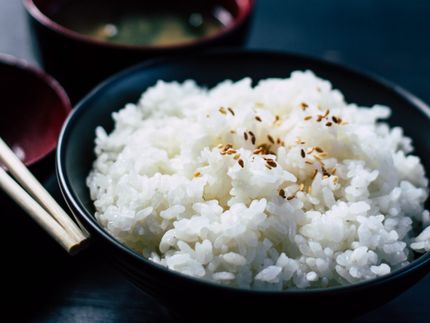Mobile App against Food Waste
"Your Virtual Cold-Chain Assistant" aims to provide smallholder farmers with access to sustainable refrigeration equipment, pre- and post-harvest expertise, and market information
Advertisement
Today, data.org announced the eight global winners of the USD 10 million Inclusive Growth and Recovery Challenge, which aims to address major societal challenges through computer and data science. Among the winners is a project by BASE ("Basel Agency for Sustainable Energy") and Empa that aims to give smallholder farmers in India access to safe cold chains through a mobile app to protect more food from spoiling.

Bild von Med Ahabchane auf Pixabay
Launched by data.org in partnership with the Mastercard Center for Inclusive Growth and the Rockefeller Foundation, the Inclusive Growth and Recovery Challenge aims to address society's most pressing challenges and help people better thrive through the use of computers, models and data science. BASE and Empa will share the $10 million in funding with the seven other awardees and use the money to further develop an open-access mobile app that will give small farmers in India access to sustainable refrigeration options for their agricultural products. This will ultimately result in significantly less food spoiling and farmers increasing their income.
India is one of the largest food producers in the world, yet 25 to 35 percent of the food produced spoils due to lack of refrigeration and other supply chain bottlenecks. Only about six per cent of food produced in India currently passes through an unbroken cold chain, compared to about 60 per cent in developed countries. This is due to several barriers that prevent farmers there from "feeding" the food they produce into cold chains. These include high upfront investment for equipment, limited access to finance, uncertainties about new technologies, limited technical know-how about refrigeration systems, limited expertise in post-harvest storage practices and, in some cases, limited access to electricity.
To address this challenge, BASE and Empa are developing an open-access, data science-based mobile app, "Your Virtual Cold-Chain Assistant," to provide smallholder farmers with access to sustainable cooling equipment, pre- and post-harvest expertise, and market information. The application will include various data inputs, including weather and climate data, geographic location data, fresh produce yields, hygrothermal cold storage sensor data, predicted remaining shelf life of produce, and real-time market prices. This will enable smallholder farmers to make refrigeration decisions based on life-cycle benefits rather than upfront costs; they will have access to easy-to-use information so that they can make optimal production and farm management decisions.
The project aims to break the negative cycle of poverty for smallholder farmers in India - while improving food security, reducing food losses, minimizing the impact of food production on the global climate, and increasing smallholder incomes by up to 30 percent.
Note: This article has been translated using a computer system without human intervention. LUMITOS offers these automatic translations to present a wider range of current news. Since this article has been translated with automatic translation, it is possible that it contains errors in vocabulary, syntax or grammar. The original article in German can be found here.


























































